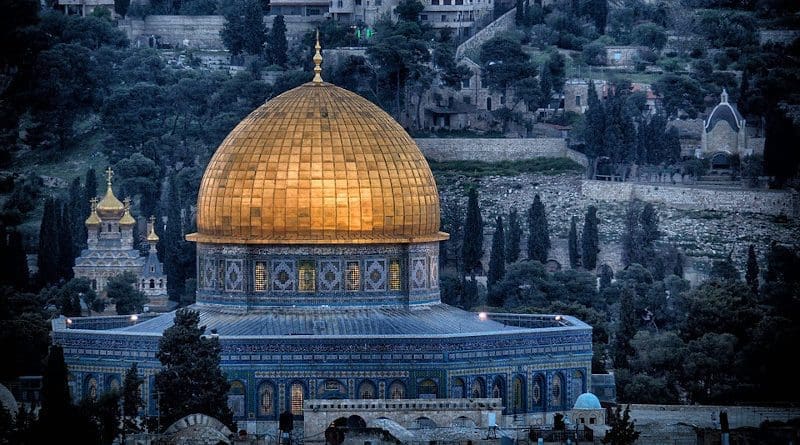Culture Shock – OpEd
By MIFTAH
By Kevin William
Whenever people ask me “How do you like it here” or “What do you think of this place”, that is usually my answer to them. Culture shock. Coming from America, my ideas and views of the world are incredibly deluded and sheltered. It is strange to say sheltered, since America is known for its “freedoms” and mobility, but in retrospect, sheltered is the only way I can describe my experience with other cultures especially those of the Middle East. Hearing English-speaking, American based news and sources that only sparsely cover aspects of events in Israel and Palestine and having access to the internet, where credibility is fleeting, one can only speculate as to what life is actually like on the other side of the world. In order to seek the truth, I decided that I have to see the land with my own eyes and draw conclusions for myself, without the radical influences of either side.
Talk about a reality check.
I’m used to living on the side of the winners, the Americans, the powerhouse, the rich and feared who support the Israeli occupation. I’m used to the media depicting our opposition—i.e. anybody who we deem as “terrorists”—as inhumane, bigoted, and intolerant. I’m used to living an easy, predictable life, while still complaining about mundane every day “first world problems”. However, what I’m not used to is living on the other side. I have gotten a chance to do so, and experiencing truth is much different than our own conjectures of the situation. Getting an actual first-hand understanding is quite possibly the most revealing thing I could undertake.
The truth hurts.
It is incredibly difficult to explain to people that haven’t experienced it, what a checkpoint really is. To my American counterparts, the best way to explain is to find some way for them to relate. Imagine being black—or a minority—in the southern United States. Then imagine getting pulled over by the police, and their only purpose is to make your life difficult. Then imagine having to go through this every day just to get to work, or just to go see friends and family. That is the reality of the situation here. These checkpoints make a normally 10-minute commute turn into an hour and a half journey. Coupled with the fact that these Israeli soldiers are thoroughly searching cars, interrogating people, and carrying large assault rifles, it all adds up for an incredibly tense and stressful situation. Even as an American, with no Arab blood, just the fact that I was in a Palestinian neighborhood raised eyebrows and warranted me harsh stares from the military guards at the Qalandiya checkpoint. I was pounded by relentless questions asking why I would leave the “haven” of Jerusalem to be around Palestinians. They could not accept the simple answer that I wanted to eat at a restaurant in the area. I could not tell if the soldiers honestly could not fathom my reasoning, or if they were just trying to make life a little bit more confusing and stressful. Granted, because I am American, I received much nicer treatment than my Arab counterparts around me. However, a harassing inconvenience of an interrogation was hardly worth the delectable kanafeh I had on the other side. Having to deal with this persecution—to a larger extent—every day seems insurmountable. The whole operation has a shockingly prison-like feel.
Prisoners in their own homes.
Ironically, the United States supports this occupation, and pours billions of dollars into this war effort. I know that if any American citizen were subject to the sort of treatment that Palestinians deal with on a daily basis, then there would be instantaneous international attention, and action would be taken immediately. My question is, what’s the difference? Or is it a question of: do people really understand the truth of what is going on? Are they only going by the media? The checkpoints are only a fraction of the injustices and hardships the Palestinians face daily, and third parties simply turn a blind eye to the reality. This may seem obvious, but in order to remove the blinders and see the actuality of it all, one must see it with their own eyes. It’s hard to understand a condition without truly experiencing it.
Kevin William is a Writer for the Media and Information Department at the Palestinian Initiative for the Promotion of Global Dialogue and Democracy (MIFTAH). He can be contacted at [email protected].

